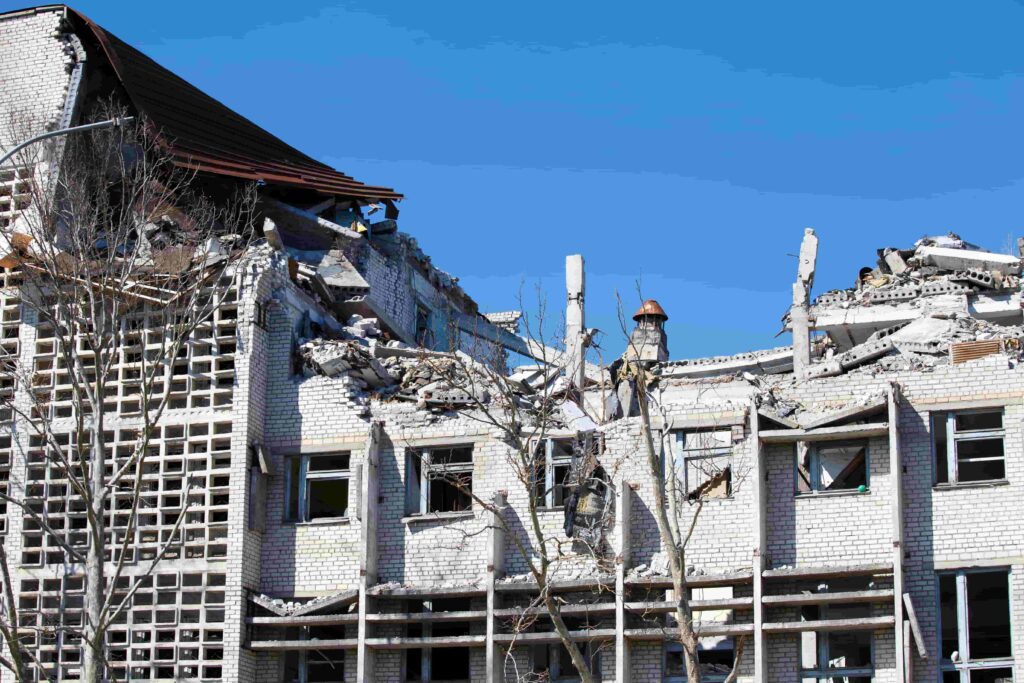
Demolition is a critical component of many construction projects, especially in dense urban environments like New York City, where space is limited and building upgrades are frequent. When estimating costs or planning project logistics, a clear and data-backed understanding of demolition activities can significantly impact the accuracy of your entire bid.
At True Bid Data, demolition isn’t just about removing materials — it’s about forecasting labor, handling environmental hazards, and aligning scope to downstream construction sequences.
How Demolition Shapes Early Cost Estimating
Demolition is often one of the first physical activities on a construction site. Its cost can vary dramatically depending on:
- Material type and structure (wood, concrete, steel)
- Height and access challenges
- Asbestos or lead abatement needs
- Proximity to adjacent structures
In New York City, many pre-war buildings require detailed assessments and selective demolition to preserve historical features or meet DOB compliance. These complexities must be captured in the estimate from day one.
Data and Quantities: Key to Demolition Takeoffs
Rather than guessing square footage or using generalized unit rates, professional estimators rely on demolition takeoffs pulled from architectural and structural drawings. These takeoffs include:
- Concrete removal (by cubic yard or SF)
- Framing teardown
- Floor and wall finishes to be stripped
- Fixture and equipment disconnection
- Roof system removal
At True Bid Data, these takeoffs are backed by digital tools and AI-powered models that calculate quantities by CSI Division and sort by demolition type, location, or phase. This ensures consistency whether the demolition is for a residential renovation or a commercial interior gut in Midtown Manhattan.
Demolition and Labor Analytics
Labor is a major driver of demolition cost — but it’s often underestimated. True Bid Data tracks unit labor hours for common demolition activities:
- Hand demolition in tight access areas
- Machine-assisted tear-downs
- Load-out and haul-away timelines
- Union vs. non-union labor requirements
In cities like New York City, union regulations, noise ordinances, and night work considerations can add significant cost layers. Factoring these correctly into your demolition estimate makes or breaks your final bid.
Environmental Hazards and Regulatory Costs
Demolition often triggers environmental compliance:
- Asbestos and lead paint surveys
- Dust suppression measures
- Waste separation and disposal documentation
- Site containment and OSHA safety protocols
Especially in older buildings, New York City mandates detailed pre-demolition assessments before permits are approved. This affects both project budgeting and scheduling.
True Bid Data allows estimators to link environmental flags within the scope, so they can quantify both material handling and cost implications clearly and defensibly.
Impact on Project Phasing and General Conditions
Demolition isn’t just a standalone activity—it shapes what comes next. For example:
- Early concrete removal might delay underground MEP installation if underestimated.
- Delays in structural teardown could push framing or steel delivery timelines.
That’s why our estimating approach incorporates demolition into project scheduling, general conditions, and cost forecasting — not just as a lump-sum number but as a tracked, measurable activity with ripple effects across the build.
Location-Based Adjustments for Demolition in NYC
In high-density areas like New York City, demolition costs are affected by:
- Limited access for dumpsters or machinery
- Protection requirements for adjacent properties
- Street occupancy permits
- Night/weekend work premiums
True Bid Data adjusts demolition unit costs to reflect these local variables using historical project data, real vendor quotes, and NYC-specific wage rates, helping our clients stay competitive and realistic in pricing.
Trust True Bid Data for Smart Demolition Estimating
Demolition is more than destruction—it’s data, labor forecasting, logistics, and regulatory navigation. Whether you’re gutting a walk-up in Brooklyn or clearing a site for a commercial build in Queens, your demolition estimate sets the stage for everything that follows.
Visit True Bid Data to bring data intelligence to your demolition estimates and get ahead of your competition with precision from the very first phase.




